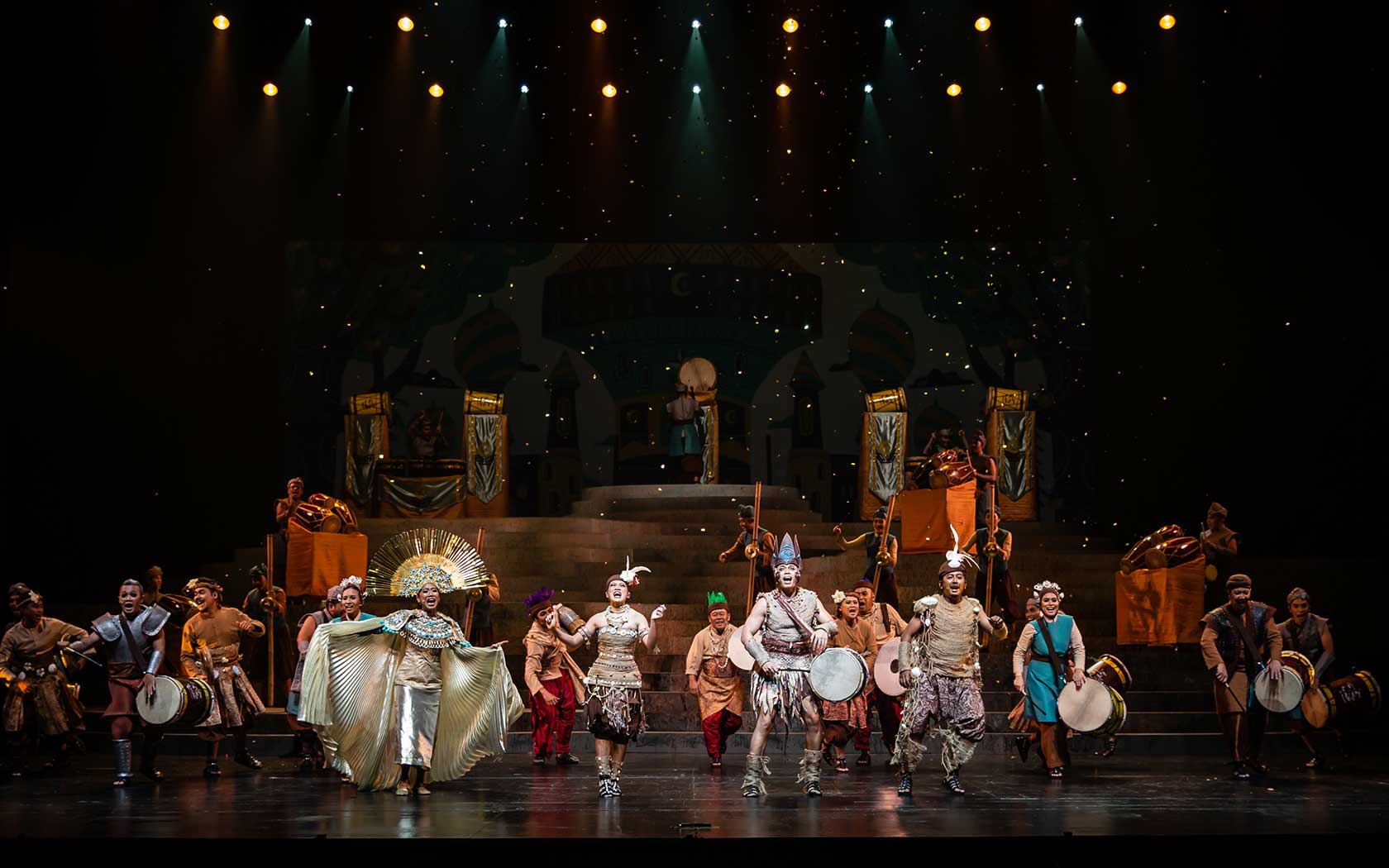We use cookies to improve your experience on our site. To find out more, read our data protection and cookie policy. By using our site, you agree to our use of cookies. Close to continue browsing.
Esplanade Presents
Qasidah: Islamic Devotional Poetry
4 Apr 2025, Fri, 9.15pm
5 Apr 2025, Sat, 7.45pm
(Intermission: None)
DBS Foundation Outdoor Theatre at Esplanade (4 Apr), Esplanade Concourse (5 Apr)
This event is over.

This event is over.
Not much is known about the origins of qasidah, yet it is believed to be one of the oldest and most esteemed forms of poetry in the Islamic world. With roots in pre-Islamic tribal and court poetry, the term qasidah, derived from the verb qasada, means “to intend” or “to aim at”. These poems can extend to over 100 verses, meticulously arranged with a single rhythmic metre and rhyme scheme. Originating in Arabia, qasidah spread through religion, trade and conquests to Persia, North and East Africa, as well as Central and Southeast Asia.
Historically, qasidah was intended to be delivered in song. The oldest examples were crafted to reflect the poets’ circumstances, praise their tribe or patron, and carry a moral message. Over the centuries, qasidah evolved to express social ideals, political commentary and sometimes satire. Poems of religious praise also gained prominence, with the most renowned being the Qasidah Al-Burdah (Qasidah of the Mantle), written in the 11th century by Egyptian poet Imam Al-Busri.
The story of Imam Al-Busri
The story goes that Imam Al-Busri was struck by semi-paralysis after a stroke. In his despair, he composed the Qasidah Al-Burdah in honour of the Prophet Muhammad. While reciting the poem in sincerity and concentration, he fell asleep and dreamt of the Prophet, who gently covered him with his mantle. Upon waking, Imam Al-Busri found himself completely cured of his affliction. Since then, the poem has been venerated by many Sunni Muslims, recited in devotion, as well as used to decorate the walls of public buildings and mosques. Some believe that reciting the poem confers blessings in life—removing difficulties, curing ailments, and aiding success in various endeavours.
From Arabia to Southeast Asia
In 1200CE, Islam and qasidah spread across Southeast Asia with the arrival of Arab traders. The poems were sung in Arabic, with more popular ones, such as the Qasidah Al-Burdah, translated into Malay even before the 1600s. Texts were sung in commemoration of Prophet Muhammad’s birthday, during rites of passage as well as at weekly religious congregations. Shorter renditions, featuring verses taken from the original long-form qasidahs, also became popular. This sung poetry is usually accompanied by frame drums such as the Malay rebana (equivalent of the Arabic daff) and the pear-shape lute, gambus.
4 Apr 2025, Fri
9.15pm
5 Apr 2025, Sat
7.45pm


Become a member

Great arts experiences begin with Esplanade&Me. Join this membership to enjoy ticket specials on shows at Esplanade, early bird specials, promotions at Esplanade Mall, unlimited access to Offstage and more.

Never miss a show again. Get on our mailing list.
- Qasidah: Islamic Devotional Poetry










